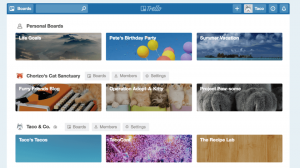— May 1, 2019
Having extensively studied the behaviors and thought processes of high-performance, positive people at EffectUX, there are many key competencies (in fact, we found 74 in the creation of EMQ, a model for feeling and performing your best). However, one stands out that all too often people forget about.
It is easy to see titles, status or promotions as a sign of progression; however, successful people also place importance on continuing to learn. Continuing to learn helps them develop, challenge themselves and feel a sense of growth. Continuous learning goes beyond taking classes or reading alone. Successful people make use of moments to expand their knowledge, increase their perspective, and question their own views, making them better leaders and contributors to business success.
Continuous learning brings them several benefits. A sense of progression enables them to feel good, mentally and emotionally. When we lack a feeling of growth we can get caught in negative emotions, feel stagnant and end up just going through the motions. It has positive impacts on their relationships as they can converse with a wide variety of people on a variety of topics. It also supports strong communication skills. By challenging their perspectives, it helps them better articulate their thoughts and reasonings. Change is constant, and by continuously learning they can keep up with changing industry and career landscapes, giving them career flexibility and opportunities as they stay up to date in their skills and learn new ones. Not to mention that actively engaging in learning and mentally stimulating activities, has been linked to health benefits.
Based on the behaviors we found, here are six ways you can create more growth and progression in your life through learning, professionally or personally!
1: Regularly Consume Informative Content
I am sure you may have read the studies and stories of those such as Bill Gates, Warren Buffet and Elon Musk spending hours of their day reading. While this may be extreme, the key is spending time reading, watching, or listening to informative content. This could be just a little bit each day, perhaps 10 or 20 minutes reading up on what’s happening or the latest in your industry with your morning coffee, or perhaps listening to a podcast during your commute. With the number of applications to curate content today and the ease of access, there really is no excuse not to spend time becoming more informed.
2: Ask Questions
Many times, opportunities to learn come from our everyday conversations. Each person we interact with has their own experiences and views that we can learn from. When someone mentions something that you may not know much about, or mentions something that is interesting, use the opportunity to ask questions or learn more (not in a creepy or annoying way of course). Also, make an effort to find and spend time with people who are smarter than you, as conversing with them will naturally introduce you to new concepts, ideas, and thoughts.
3: Increase Your Self-Awareness
Many people think they are self-aware. However, it has been found that while 95% of people think they are, only 10-15% actually are. Self-awareness is critical for growth, leadership and to business success. There are many ways to increase your self-awareness. One of these is utilizing the many quizzes and thought exercises out there to gain a better understanding of your strengths, skills, and areas for enhancement. However, to really find out your blind spots, you need to know more than your thoughts alone. So, make sure you look for the richer and more intelligent assessments that can shed light on your unknown-unknowns.
4: Ask People for Feedback
Looking at yourself from your own lens is one thing, however, you also need to increase your self-awareness in terms of how others perceive you to see how you are truly showing up. With the best of intentions, we may behave in certain ways that people see very differently to how we may think. It helps to ask people for feedback on how we are doing and how we can improve. If this is tough for you, start by asking 3-5 people you trust and respect. If you are a manager, consider asking your employees for feedback on how you are doing. You can also use this in your personal life, asking your partner, family or friends. Others observe things that we can be blissfully unaware of. Just remember, that we may not always like what people have to tell us or how they deliver it, but we must remain open and receive what they are telling us if we really want to grow.
5: Practice Reflection
Those that feel fulfilled create space for purposeful reflection. This is thinking about how things are going, your emotions and exploring outcomes. Reflection supports continuous learning as it gives you pause to see patterns and correlations from which you can take actions based on what you are doing well, where you can improve, and remove any barriers to your goals. Reflection is also a key component of successfully engaging new happier, healthier behaviors. Spending some focused time thinking can help you better process challenging situations, which allows you to respond, rather than react, in these moments.
You can start by periodically asking yourself: what went well? What didn’t go well? Who do I want to be? How do my behaviors support this? What have I learned and how can I apply what I have learned? Being able to acquire new and better knowledge and then apply it to make you happier, healthier, faster, or smarter, will help you excel.
Reflection works for teams too. As a manager, discussing lessons learned in projects, exploring failures and working to apply these learnings as a team, helps build the reflection muscle and creates open environments for growth.
6: Actively Seek Different Perspectives
It is easy to flock towards people with similar views to our own. However, successful people purposefully seek out perspectives that are different to theirs. If you are surrounded by people that think just like you, you won’t experience diverse thoughts. Interacting with people with different personalities, backgrounds, experiences and opinions has several benefits. It increases your perspective, challenges your views, helps you identify assumptions and it increases innovation. If you look around you and you see a lack of diversity, try to expand your network or talk to more people.
In summary, take a look at your daily life and see how you can infuse more learning moments into it. Perhaps it’s setting aside a few moments to read, perhaps it’s asking more questions, or perhaps it’s increasing the diversity of your network. At the end of the day, learning opportunities are all around us, we just have to be aware and open enough to experience them.
Business & Finance Articles on Business 2 Community
(60)
Report Post





